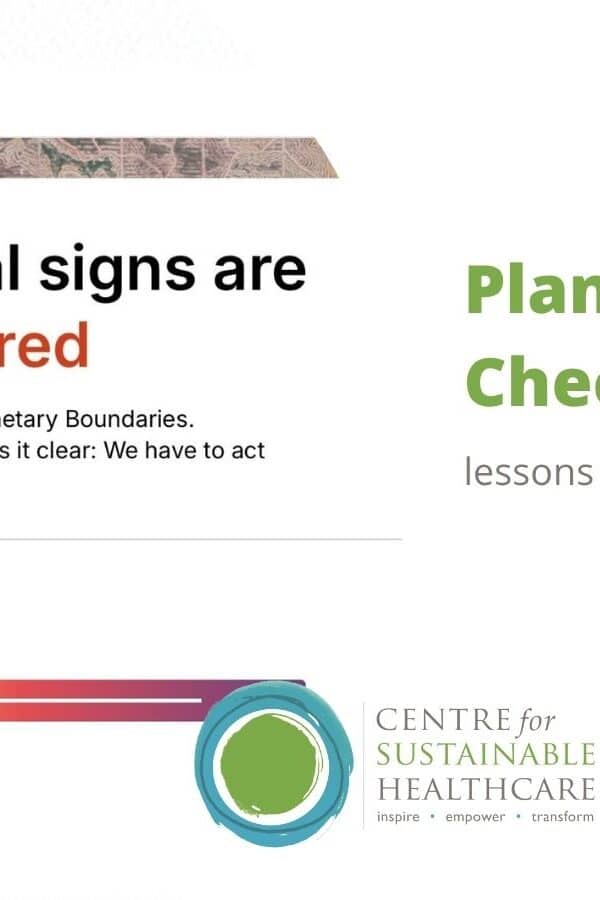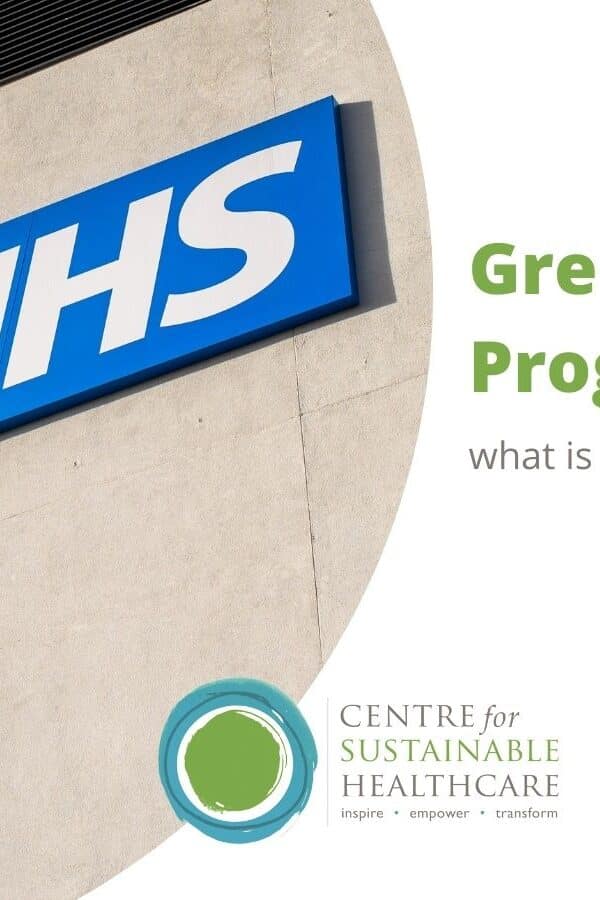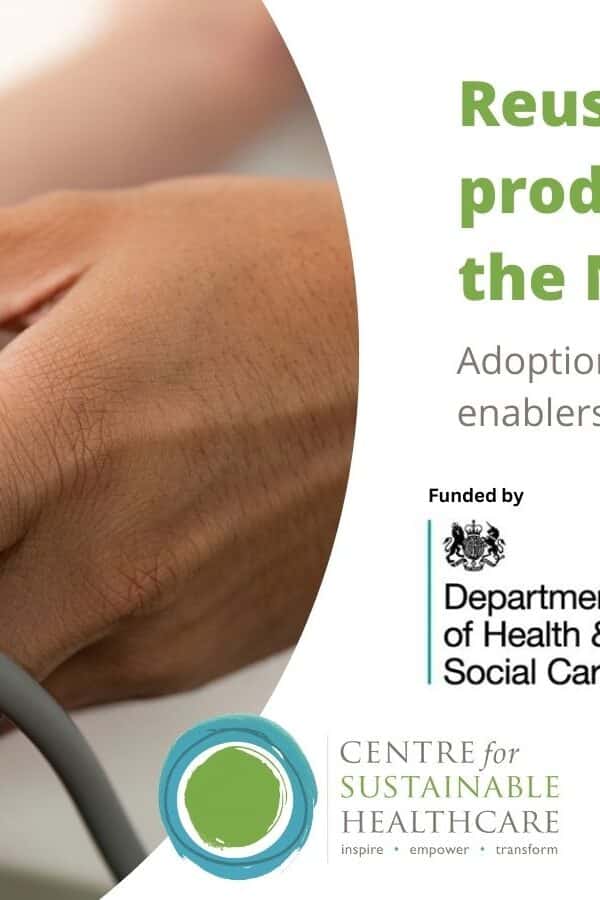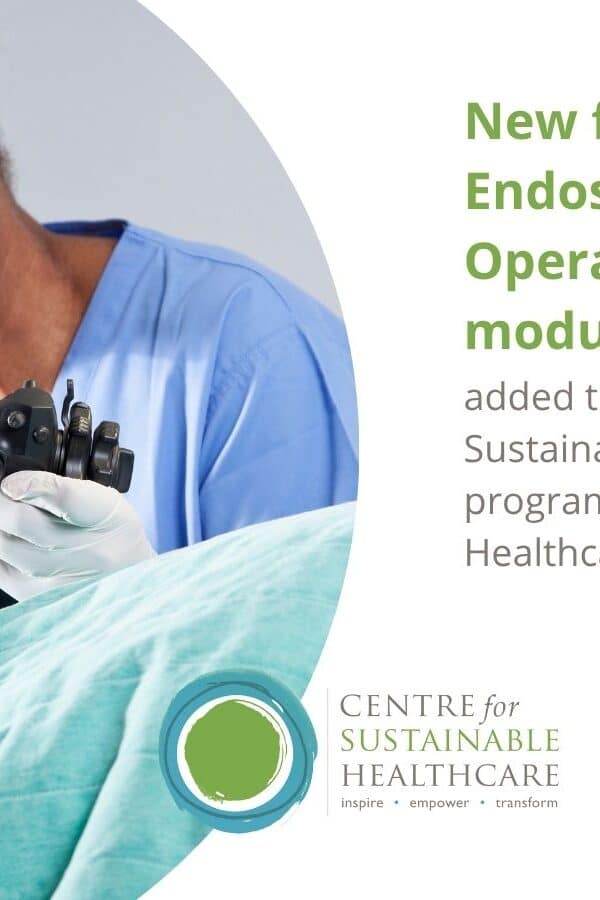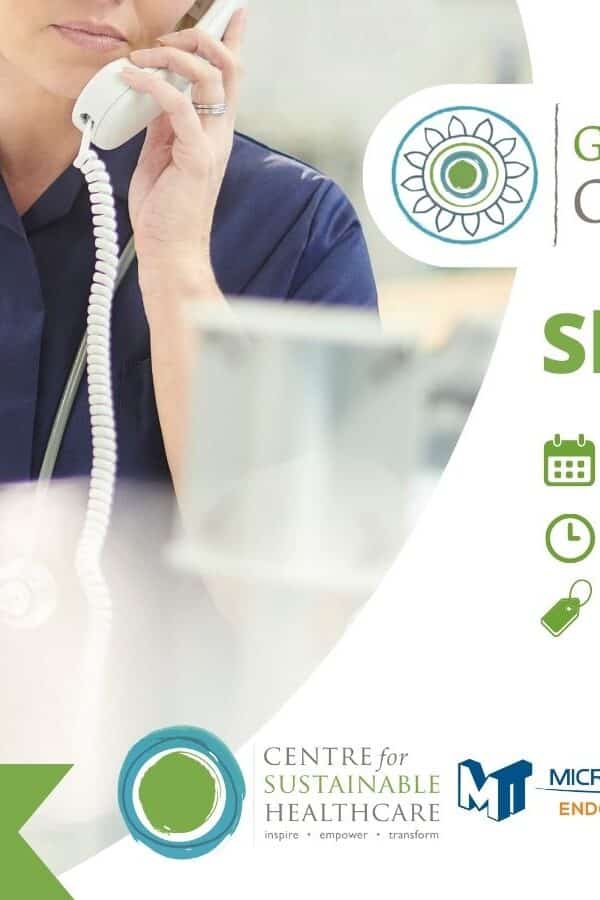As financial pressures intensify across the NHS, trusts are seeking solutions that deliver not only clinical excellence but also tangible cost savings. In this challenging environment, sustainability is often misunderstood as a “nice-to-have” – when in fact, it’s increasingly proving to be a strategic driver of financial resilience.
Sustainability in Quality Improvement: how the NHS can cut costs and carbon
At the Centre for Sustainable Healthcare, we’ve seen first-hand how applying the Sustainability in Quality Improvement (SusQI) approach enables trusts to reduce waste, lower costs, improve patient outcomes, and decrease their environmental impact — all at once.

“Frontline teams are using quality improvement (QI) approaches to deliver care more efficiently and with better results for patients. By including a sustainability perspective within their QI work, the SusQI tool helps healthcare providers find opportunities for savings that can be overlooked by traditional processes, cutting costs and carbon at the same time.”
Chris Naylor, senior Fellow in Health Policy at The King’s Fund and Policy Lead at the Centre for Sustainable Healthcare
Below, we explore real-world NHS case studies that show how small-scale interventions, grounded in SusQI principles, are generating high impact savings annually. And importantly, we highlight how your finance teams can harness this methodology to future-proof clinical care and budgets.
Project 1: Reducing medicine waste
Location: Hampshire Hospitals NHS Foundation Trust
Annual Saving: £83,628
Annual CO₂e Saving: 28,323kg
By encouraging inpatients to return unused medications on just eight wards, Hampshire Hospitals savings from just 8 wards were £83,628 and 28,323.36 kgCO2e, equivalent to driving 83,648 miles in an average car y — all while improving pharmacy–ward collaboration and accelerating discharge processes.
SusQI Insight
This was achieved by mapping environmental and financial waste alongside process inefficiencies, leading to a co-designed, sustainable workflow.
Project 2: Remanufactured surgical devices and reusable gowns
Location: Hampshire Hospitals NHS FT
Annual Saving: £73,834
Annual CO₂e Saving: 52,919kg
Switching to remanufactured harmonic scalpels and reusable surgical gowns reduced clinical waste and procurement costs by nearly £74k annually with 99% staff approval. This project didn’t just cut emissions; it demonstrated the business case for circular procurement in clinical environments.
SusQI Insight
The team used quality improvement to track outcomes, gather staff feedback, and demonstrate equivalent safety and effectiveness — essential for staff buy-in.
Project 3: Kapsule Kids – enabling children to switch from liquid to tablets
Location: Great Ormond Street Hospital
Annual Saving: £258,255
Annual CO₂e Saving: 329kg
Helping just 10 paediatric transplant patients transition to capsule medications (rather than costly liquids) saved over £250k annually, improved medication adherence, reduced shortages, and empowered children to manage their own care more confidently.
SusQI Insight
Specialist clinical input, focusing on a small population with disproportionately high medication costs enabled the team to achieve outsized financial returns with minimal resource input.
Project 4: Reducing food waste in hospital catering
Location: Hampshire Hospitals NHS FT
Annual Saving: £162,119
Annual CO₂e Saving: 143,831kg
Award-winning initiative saving £162,119 annually, with significant reductions in food waste, emissions, and operational inefficiencies. The team made several changes including improving portion size options, developing new menus with lower carbon meat and vegan options and removing high waste dishes, in line with staff and patient feedback.
SusQI Insight
Identifying systemic inefficiencies in non-clinical areas can yield “quick wins” for finance teams, often with lower barriers to implementation.
Why finance leaders should pay attention to SusQI
Across just these four projects, total annual savings exceed £500,000, with additional benefits in:
- Patient experience improved
- Staff time saved
- Emissions reduced
- Operational inefficiencies resolved
All of these projects followed the SusQI framework – a structured approach that embeds sustainability into quality improvement. Rather than relying on siloed green initiatives, SusQI equips NHS staff to:
- Quantify financial and environmental waste in daily practice
- Co-design improvements with measurable outcomes
- Scale successful pilots across departments or entire Trusts
- Build the business case for sustainable procurement and service redesign
Investing in SusQI: a cost-saving strategy
In the current NHS financial climate, decision-makers are tasked with making every pound deliver greater value. Sustainability in Quality Improvement is not an additional burden — it’s a strategic investment in efficiency, resilience, and cost-effectiveness.
Our SusQI services provide NHS organisations with:
- Training for staff
- Facilitated projects to kick-start sustainable cost saving
- Templates and tools to track CO₂e, cost, and clinical outcomes
- Organisational support to embed sustainability concepts and tools into all improvement work
Ready to cut costs Sustainably?
If you’re responsible for financial performance in your NHS organisation, now is the time to explore how SusQI can help you save money, reduce emissions, and enhance care.

Contact us to discuss how our SusQI packages can support.
Together, we can build a financially sustainable future for the NHS




